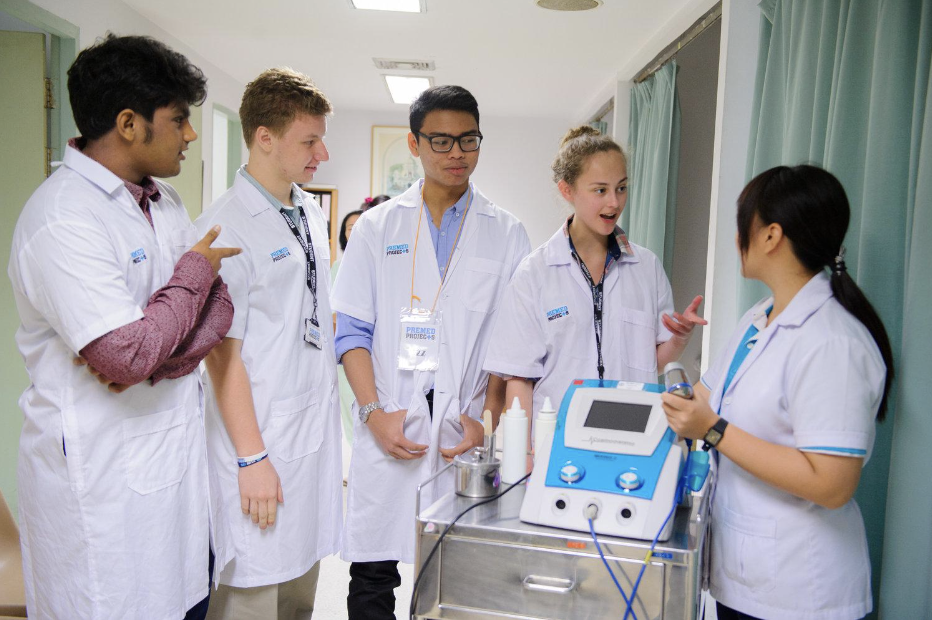Becoming a medical practitioner is a demanding career path that requires many years of education, training, and experience. Medical students must complete several years of medical school, followed by residency programs that can last anywhere from three to seven years. Apart from education and training, work experience plays a vital role in the career growth of a medical practitioner.
In this blog, we will discuss the importance of hospital work experience for medical professionals and how it can help in career growth.
1. Gain Practical Experience
Hospitals provide an ideal environment for medical students to gain practical experience in their field of study. By working in a hospital, medical students can observe firsthand how medical professionals diagnose and treat patients. They can also participate in the patient care process, such as taking vital signs, administering medication, and monitoring patients’ progress. This practical experience is invaluable for medical students, as it helps them to develop the skills necessary to become competent and confident medical professionals.
2. Learn About Different Medical Specialties
Hospitals are typically large institutions that provide a wide range of medical services. By working in a hospital, medical students can learn about the different medical specialties available and gain exposure to various fields of medicine. They can observe medical professionals working in different departments and learn about the unique challenges and opportunities associated with each specialty. This knowledge can help medical students to make informed decisions about their future career path and choose a specialty that aligns with their interests and strengths.

3. Build a Professional Network
Working in a hospital provides medical students with an opportunity to build a professional network of medical professionals. They can interact with physicians, nurses, and other medical staff and learn from their experiences and insights. This networking can be useful when medical students are ready to begin their job search or apply for residency programs. A recommendation from a respected medical professional can go a long way in securing a job or a residency program.
4. Develop Soft Skills
Working in a hospital also provides medical students with an opportunity to develop soft skills that are essential for success in the medical profession. Soft skills such as communication, teamwork, problem-solving, and empathy are critical for effective patient care. Medical students who work in a hospital setting have the opportunity to interact with patients and their families and learn how to communicate with them effectively. They also work in a team environment, collaborating with other medical professionals to provide the best possible care for patients. This experience can help them develop the skills necessary to become successful medical professionals.
5. Understand the Importance of Patient Care
Working in a hospital can help medical students understand the importance of patient care. They can observe how medical professionals prioritize patient care and work to provide the best possible outcomes for patients. They can also learn about the challenges associated with providing patient care, such as managing patient expectations, dealing with difficult patients, and navigating complex medical situations. This understanding of patient care can help medical students to develop a patient-centered approach to medicine and become compassionate and caring medical professionals.
6. Gain Exposure to the Latest Medical Technologies
Hospitals are often at the forefront of medical technology, with access to the latest medical equipment and devices. Medical students who work in a hospital setting can gain exposure to these technologies and learn how they are used to diagnose and treat patients. This experience can be particularly valuable for medical students who are interested in pursuing a career in a specialty that requires the use of advanced medical technologies, such as radiology or cardiology.

How to Get an Entry in Hospital for Work Experience?
Getting work experience in a hospital can be a challenging process, but there are several steps that you can take to increase your chances of securing an entry-level position. Here are some tips on how to get an entry in a hospital for work experience:
Research hospitals in your area: Start by researching hospitals in your area that offer work experience opportunities. Look for hospitals that have a reputation for providing high-quality care and that offer a variety of medical specialties.
Check for available positions: Once you have identified hospitals that interest you, check their website or job listings for available entry-level positions. These positions may include roles such as medical assistants, nursing aides, or administrative assistants.
Submit a strong application: When applying for an entry-level position in a hospital, it is essential to submit a strong application that highlights your relevant skills and experience. Optionally, you could choose to research the field or take an online course such as this medical terminology online course accredited to boost your medical knowledge and help your CV stand out. Be sure to customize your resume and cover letter to the specific role you are applying for, and highlight any relevant coursework, volunteer experience, or extracurricular activities.
Network: Networking can be an effective way to gain entry into a hospital for work experience. Reach out to family members or friends who work in healthcare and ask if they know of any opportunities. You can also attend career fairs or other events hosted by hospitals to meet and network with professionals in the industry.
Volunteer: Volunteering can be an excellent way to gain work experience in a hospital setting. Many hospitals have volunteer programs that offer opportunities to work alongside medical professionals and gain firsthand experience in patient care.

Consider an internship: Some hospitals offer internships for college students or recent graduates. These internships provide an opportunity to gain hands-on experience in a hospital setting and can often lead to entry-level positions after completion.
Follow up: After submitting an application or attending an interview, it is essential to follow up with the hospital to express your continued interest and ask about the status of your application. This demonstrates your enthusiasm for the position and can help keep you top of mind with the hiring team.
In conclusion, getting an entry in a hospital for work experience requires patience, persistence, and a strong commitment to learning and growing in the healthcare industry. By following these tips and being proactive in your search, you can increase your chances of securing an entry-level position and jump-starting your career in medicine.





